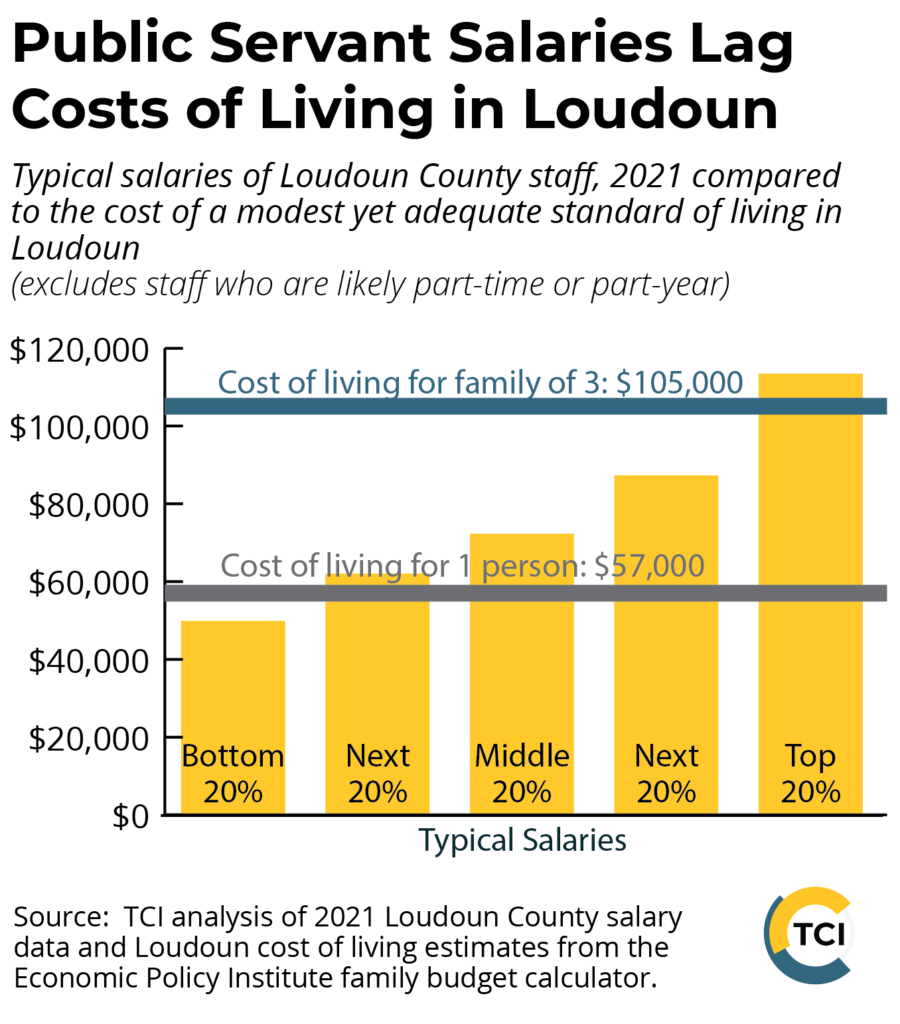July 15, 2021
Coming Together for Loudoun County: Collective Bargaining Strengthens Communities and Families
Loudoun County is a growing, increasingly diverse community that is a place of aspirations and contrasts: one of the highest-income counties in the United States, and a place where many who do the essential work of our communities can’t afford to live. Loudoun has top-notch public services, and Loudoun’s public employees play a significant role in creating and maintaining those services, and it’s important that we make sure that those public servants are fairly paid and have a voice in their workplace. Allowing collective bargaining will provide county employees a formal voice to lift up ways to improve public services and build a more equitable workplace. In the end, that benefits every one of us.

“For over 26 years, I’ve worked as an employment specialist for the county. I collaborate with local businesses to employ residents who live with a range of disabilities, helping them find and keep competitive jobs. When I think about collective bargaining, I think about the opportunity for experts like me and my colleagues to do even more for the clients we support. When we have a real voice on the job, everyone’s lives will improve — workers, residents, leadership, and more. It means the ability to speak up when we know something could be done better. It means strengthening public services by improving resources and retaining staff. It means working in partnership with Loudoun County to make this a place where ALL can thrive.”
— Crissy Helinski, Employment Specialist
Public employees in Loudoun County are currently underpaid and turnover rates are high

- Many public employees in Loudoun County can’t afford to live in the county they serve. A review of county employee salaries (excluding those who from their pay and job title are likely part-time employees) shows that one in five likely couldn’t afford to support themselves in Loudoun County at a modest yet adequate standard of living. And the majority couldn’t attain an adequate standard of living on what they are paid if they have children.
- Due to the cumulative impact of past and present barriers to employment, workers of color in Loudoun County are often in lower-paid positions and could most benefit from the protections of collective bargaining. Among Loudoun County classified permanent employees, Black (55%), Hispanic/Latino (63%), and Asian American (59%) workers are more likely than white workers (45%) to be in the bottom half of workers in terms of placement in the classification system.
- Local public employees in Virginia are typically paid 29.9% less than their private-sector peers with similar levels of education, age, and hours worked, one of the largest pay penalties in the country. Although data is limited, it appears that the penalty is even larger in Northern Virginia, with local government employees being paid 33.4% less than their private-sector peers.
- Pension and healthcare benefits don’t make up for these pay penalties. Employee benefits for local public employees in Virginia are less generous than in other parts of the country, and many private-sector employees, particularly full-time employees of large companies, receive generous benefits. For Virginia as a whole, the estimated total compensation penalty for local employees compared to their private-sector peers is 28.0%, close to the pay penalty of 29.9%.
- Turnover rates for county employees are high, which has direct costs in terms of training and recruitment, and also reduces the quality of services as fewer employees are stretched thin trying to do multiple jobs. In fiscal year 2019, there was a 10.4% turnover rate for Loudoun County. One review of 30 case studies in 11 research papers found that turnover costs employers between 16% and 21% of an employee’s annual salary.
Unions reduce unfair pay inequities
For public employees, one of the benefits of unions is increasing pay to levels that are closer to that which could be obtained in the private sector. Overall, public sector collective bargaining tends to boost pay by 5% to 8%, and the fair and clear standards provided by unionization particularly help Black and Latino workers. Women, who make up the majority of local government workers (especially in Virginia), would also particularly benefit from collective bargaining. This is important because past discrimination and ongoing barriers mean Black workers, Latino/a workers, and women of all races are still typically paid less than white men with the same level of education and experience in both public and private sector employment.

“I am a dedicated Loudoun County employee of over 20 years and a member of the county’s newly created Government Alliance on Racial Equity. The group focuses on many things including equity in the workplace. If Loudoun County wants to practice what it preaches when it comes to racial equity, collective bargaining is a necessity. Collective bargaining is a tool that helps to make necessary changes toward racial equity as it relates to pay, benefits, and working conditions for the dedicated employees that keep this community running.”
— Julius Reynolds, Juvenile Probation Officer
While local government employees in Virginia are typically paid 29.9% less than their private-sector counterparts with similar educations, states where public employees are allowed to collectively bargain have smaller pay penalties. In states that have a policy like Virginia’s new law that allows but does not require localities to permit employees to collectively bargain, the average pay gap for local employees compared to their private sector peers was 16.6%, and where collective bargaining rights were protected by the state the pay gap was 10.5%.
And, because women and Black people are more likely to choose public service jobs, addressing pay penalties for public employees will reduce the broader problem of women and Black people being paid less than their peers with similar levels of educational attainment and experience.
Given the particular importance of unions in raising pay for those who for too many years have been underpaid compared to their levels of experience and education, it’s not surprising that anti-union laws throughout the south were passed using explicit appeals to racist ideas. Undoing that legacy will require proactive steps to create more equitable policies and workplaces.
Having a union provides a voice in the workplace and reduces turnover
The impact of unions is not just on pay and benefits. Collective bargaining provides a way that represented workers can formally express their ideas for how to improve their workflow and workplaces. This can improve communication and a sense of belonging. Having the experience of collective bargaining and union representation in the workplace even makes people — particularly younger people and those with less formal education — more likely to participate in other systems of democratic governance such as voting.

